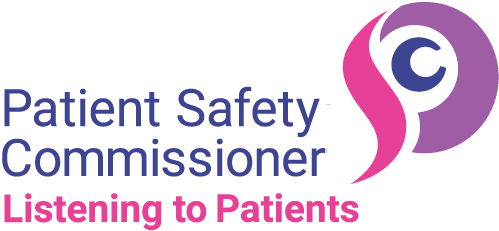
I have recommended that NHS England set up a system for monitoring the safe use of the most potent teratogenic medications, starting with the safe use of sodium valproate in patients on a pregnancy prevention programme.
Since I became the Patient Safety Commissioner last year, there has been progress on tackling the risk of women of childbearing potential prescribed sodium valproate. Babies who are exposed during pregnancy can develop physical and learning disabilities and it is estimated that even with all the safety measures in place, three babies a month are born with exposure to sodium valproate.
But it is not enough to focus on sodium valproate along. Other teratogenic medications also carry risks if taken during pregnancy. Sadly patients may not have the information that they need, nor access to highly effective contraception and it is vital that women understand the risks in pregnancy before conception occurs.
When I started in my role, a patient sent me a photo of sodium valproate dispensed in a plain white box, without the necessary warning labels or patient information. This was in contravention to the pregnancy prevention programme set up in 2018, so it was clear to me that the system wasn’t working as it should.
I have pushed for the law to be changed to end the use of white boxes to dispense potentially harmful medication without patient alerts. I am pleased this change came into force In October. But many gaps across the patient pathway continue, putting women and their future pregnancies at risk. Furthermore, there are wide variations in the level of prescribing of sodium valproate in different parts of the country with no clear explanation.
Integrated Care Systems (ICSs) came into force in April this year and have a unique role in the whole patient pathway, from specialist care in hospitals and mental health units to contraception services, prescribing by GPs and dispensing of medicine by community pharmacists. All have a role in the safe use of teratogenic medicines in women of childbearing potential, and the whole system has to work together to keep patients safe. NHS England take a national lead in making sure that each ICS is able to provide this level of monitoring and to help share best practice and learning.
I have recommended that NHS England establish a National Quality Improvement Programme for ICSs to be implemented by September 2024 for sodium valproate, expanding to cover all teratogenic medication that requires a pregnancy prevention programme for women of childbearing age by September 2025.
We know the harm to babies and children caused from exposure of pregnant women to sodium valproate and I’m clear that ensuring women are aware of the risks must be high on NHS England’s priority list.
I have made this recommendation to the NHS England Medical Director Steve Powis. I have asked for a response to my recommendation within three months alongside details of how it plans to implement this. We will publish the response on our website. In terms of monitoring the implementation I have suggested that an update can be provided to the National Patient Safety Committee, of which I am a member, so we can be sure that it is on track.
What I have learned from my conversations with patients is that they want the right controls in place to keep them safe, not only to learn from when things go wrong. Effective systems to monitor patients on teratogenic medications is a step towards preventing harm and keeping people safe.

